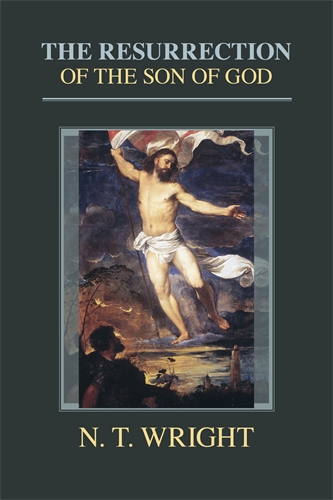 A few reflections on NT Wright’s 2003 book, The Resurrection of the Son of God:
A few reflections on NT Wright’s 2003 book, The Resurrection of the Son of God:
- It’s long (738 pages). This isn’t surprising, given the vast amount of material covered. But I couldn’t help feeling that it was longer than necessary. It’s the first of Wright’s more academic works I have read. I was expecting a very dense style, in contrast to his more popular books, but it was just as readable. The biggest difference in style, it seems, is that the more popular books have much tighter constraints in terms of length, and this forces Wright not to ramble or repeat himself.
- It’s a history book. I’m not sure what I was expecting – probably something like Surprised by Hope but longer, unpacking the significance of Jesus’ resurrection for Christians today. But the book never leaves the ancient context. It is highly focused on the historical task. For example, when examining the beliefs articulated in the New Testament texts, the purpose is always to pose the historical question, ‘What happened in history to lead people to believe these things?’
- It’s compelling. The historical case is very strong indeed. Given the historical context, the idea that Jesus would rise bodily from the dead was utterly bizarre and unexpected. But the early Christians undoubtedly believed this to have happened. Why did they belief such a bizarre thing? The only reasonable explanation is that it actually happened.
- It’s comprehensive. I’ll certainly be returning to this book again and again whenever I want to know about any relevant passage in the Old or New Testament, or about ancient pagan, Jewish or Christian beliefs about life after death.
The basic argument goes like this:
- Ancient pagans believed all sorts of things, but certainly not that dead bodies come back to life again.
- A common belief among Jews (based on the Old Testament) was that all of the dead would be raised on the last day, all at once. No one was expecting the Messiah to be raised from the dead on his own, before everyone else. (No one was expecting the Messiah to die in the first place, especially not by being betrayed by his people and executed by the Romans he was supposed to overthrow!)
- The New Testament (along with other sources) shows unequivocally that the early Christians believed that Jesus had been raised bodily from the dead, and that this belief was of central importance.
- The only plausible explanation for this belief is that the tomb was actually empty, and that the post-resurrection appearances really happened.
- The significance of this belief is that Jesus is (1) the Messiah, (2) the world’s true lord, and (3) the revelation of the one true God.